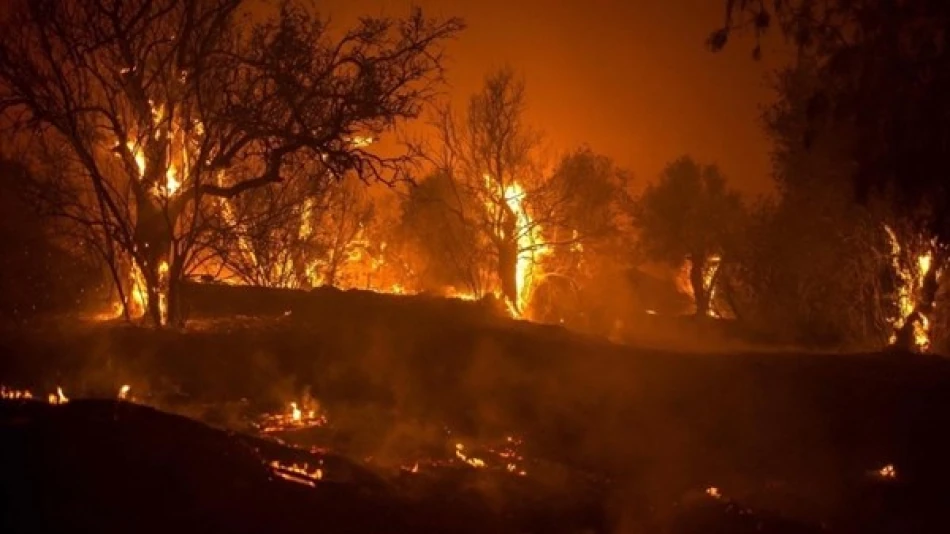
Greece, Spain, and Portugal Race to Contain Raging Forest Fires
Southern Europe Battles Deadly Wildfire Crisis as Climate Reality Bites
Firefighting teams across Greece, Spain, and Portugal are racing against time to contain devastating wildfires that have already claimed three lives in Spain alone. While calmer winds on Thursday provided temporary relief for aerial operations, the broader crisis exposes Southern Europe's growing vulnerability to extreme weather events that are becoming the new normal rather than seasonal anomalies.
A Brief Respite in the Battle Against Flames
The reduction in wind speeds across the three worst-affected countries allowed firefighting aircraft to intensify water-dropping operations, offering hope for containment efforts that had been hampered by challenging conditions. However, authorities warn that extreme temperatures are likely to persist, suggesting this reprieve may be short-lived.
Spain reported the death of a volunteer firefighter who suffered severe burns in the Madrid region this week, bringing the country's fire-related fatalities to three. Thousands of residents evacuated from the area remain unable to return to their homes, highlighting the human cost of what's becoming an annual crisis.
Greece Faces Arson Concerns Amid Natural Disasters
In Greece, firefighters successfully contained a major blaze outside the southern coastal city of Patras, preventing it from reaching urban areas. Authorities arrested three individuals in connection with the fire, which they believe may have been deliberately set—a troubling development that compounds natural climate risks with human malice.
Greek Civil Protection Minister Yannis Kifalogiannis warned that authorities are preparing for the possibility of a new round of major fires as strong winds shift to different parts of the country. This proactive stance reflects lessons learned from previous seasons when rapid fire spread caught communities off-guard.
EU Solidarity Mechanism Under Strain
The European Union's Civil Protection Agency has responded to assistance requests this week from Greece, Spain, Bulgaria, Montenegro, and Albania, deploying firefighting aircraft and helicopters from other member states. This coordinated response demonstrates the bloc's mutual aid capabilities, but also reveals how widespread the crisis has become across southeastern Europe.
A Pattern of Escalating Extremes
This summer's fires follow a pattern of increasingly severe wildfire seasons across the Mediterranean region. Unlike the cyclical droughts of previous decades, current conditions reflect sustained high temperatures and prolonged dry spells that create tinderbox conditions across vast areas simultaneously.
The multi-country nature of this crisis mirrors similar challenges faced in other fire-prone regions like California and Australia, where traditional firefighting resources are often overwhelmed by the scale and intensity of modern blazes. The need for international assistance has become routine rather than exceptional.
Economic and Environmental Stakes
Beyond immediate safety concerns, these fires threaten tourism revenues crucial to Southern European economies still recovering from recent global disruptions. The agricultural sector faces particular vulnerability, with olive groves, vineyards, and other Mediterranean crops at risk during peak growing season.
Insurance markets are closely watching developments, as repeated extreme weather events drive up premiums and force reassessment of risk models across the region. Property developers and investors are beginning to factor wildfire risk into long-term planning, potentially reshaping development patterns in vulnerable areas.
The current crisis underscores a fundamental shift: what were once considered exceptional weather events are becoming predictable seasonal challenges requiring permanent adaptation rather than emergency response. Southern Europe's ability to manage this transition will determine both human safety and economic stability in the years ahead.
Most Viewed News

 Layla Al Mansoori
Layla Al Mansoori






